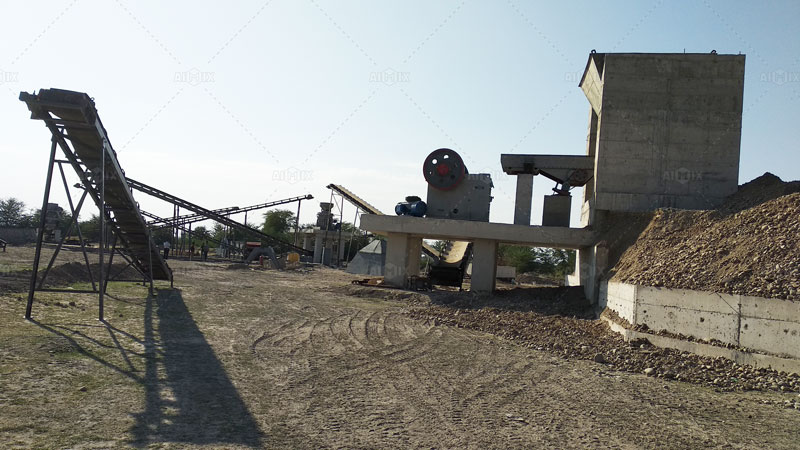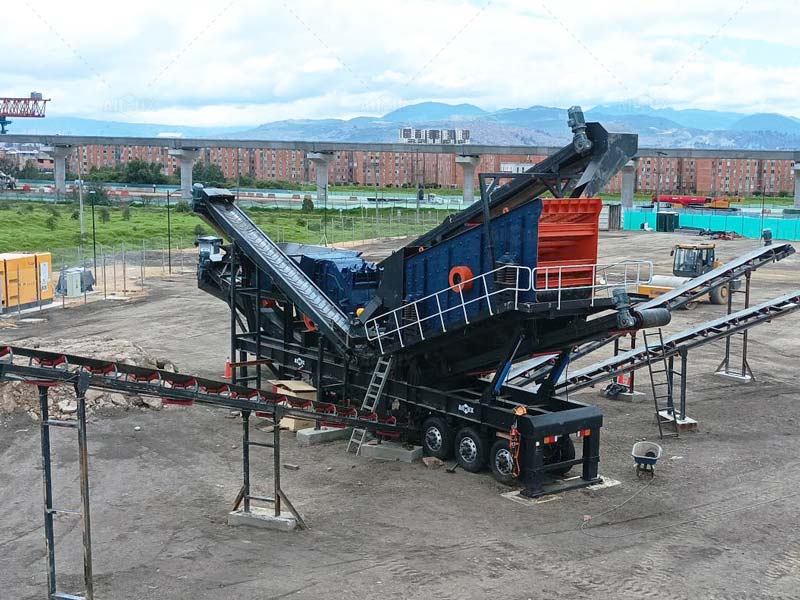In Latin America’s booming construction and mining industries, the demand for reliable crushing equipment is higher than ever. Whether for road building, mining operations, or infrastructure development, contractors and quarry operators increasingly rely on stone crusher plants to produce high-quality aggregates. But purchasing the right equipment is just the first step. What truly determines long-term success is the quality of after-sales service. Without strong support post-delivery, even the best machines can face costly breakdowns and extended downtime.
The High-Stakes Nature of Aggregate Production in Latin America
Latin America presents unique challenges for aggregate production. From the high altitudes of the Andes to the humid Amazon basin, stone crusher equipment must endure extreme climates, variable terrain, and often remote job sites. In such environments, a small technical fault or part failure can halt production for days if immediate support is not available.
Many projects in the region operate under strict timelines. Delays not only lead to financial losses but may also damage contractor credibility. For operators running a stone crusher plant(planta chancadora) or a mobile stone crusher plant, the ability to minimize downtime and resolve issues quickly becomes a competitive advantage. That’s why a comprehensive after-sales service strategy is no longer optional—it’s essential.

What After-Sales Service Should Include
1. Timely Spare Parts Availability
Crushing equipment endures heavy wear. Components such as jaw plates, belts, screens, and bearings need regular replacement. When operating stone crusher plants far from urban centers, delays in sourcing parts can be catastrophic. Reliable suppliers should have regional spare parts warehouses or a well-developed logistics chain that can deliver replacements quickly—even to remote areas.
2. On-Site Technical Support
When a machine goes down, the clock starts ticking. Immediate access to trained technicians is critical. Especially for mobile stone crusher plant(planta chancadora movil) units that relocate frequently, field engineers must be able to troubleshoot on-site and reduce the time between failure and resolution. In Latin America, having Spanish-speaking service staff with knowledge of local jobsite conditions makes this even more effective.
3. Remote Monitoring and IoT Integration
Advanced aggregate crusher plant systems now feature IoT modules that allow operators to track performance, schedule maintenance, and monitor faults remotely. This remote support reduces the need for on-site visits and allows faster intervention. After-sales teams can access real-time data, provide troubleshooting guidance, and even initiate corrective actions without needing to physically inspect the machine.
4. Preventive Maintenance Programs
Waiting until something breaks is no longer acceptable in high-stakes projects. Scheduled checkups, wear-part assessments, and preventive maintenance routines can significantly extend equipment life and reduce long-term costs. A reliable service partner should offer maintenance contracts and predictive servicing to keep stone crusher plants running efficiently year-round.
5. Operator and Maintenance Training
Equipment is only as good as the people operating it. After-sales service should include training programs for local operators and maintenance staff. Topics should cover daily inspections, lubrication routines, fault recognition, and emergency shutdown procedures. For Latin American clients, language-specific materials and hands-on demonstrations are especially valuable.

Case Study: Supporting a Crushing Operation in Rural Peru
Consider a road contractor operating an aggregate crusher plant(planta de agregados) in a mountainous region of Peru. The project site is located five hours from the nearest service center. Midway through operations, the cone crusher unit stops functioning due to a motor issue. With no technical team nearby and no spare motor on-site, the operation risks halting for several days.
However, thanks to a strong after-sales arrangement, the operator contacts the supplier’s service hotline. Within an hour, remote diagnostics help identify the issue. A replacement motor is dispatched the same day, and a technician reaches the site within 24 hours. The plant is back in operation with minimal loss. This scenario underscores the tangible value of proactive support.
The Competitive Edge in Latin American Markets
Customers in Latin America are increasingly discerning. They are no longer just looking for equipment—they are looking for reliability, efficiency, and long-term partnerships. Suppliers offering comprehensive after-sales support—regional warehouses, 24/7 service lines, bilingual technicians, and structured maintenance programs—stand out in a crowded marketplace.
In the competitive world of infrastructure and mining, contractors can’t afford unexpected delays. Offering just a machine without a support plan is a losing proposition. To win in Latin America, manufacturers must think beyond the sale and build their brand around reliability and trust.
Conclusion: Service Is Core to Crushing Plant Success
From initial deployment to day-to-day operations, after-sales service defines the ownership experience of any stone crusher plant(plantas chancadoras de piedra en Perú). Whether you’re working with a stationary setup or a mobile stone crusher plant, strong support translates to higher uptime, better efficiency, and lower operational risk.
As Latin America’s demand for aggregates continues to grow, customers will increasingly choose suppliers who offer more than just equipment. They will choose those who stand by their products with world-class service. In this region, after-sales support is not a nice-to-have—it is the foundation of long-term success.
